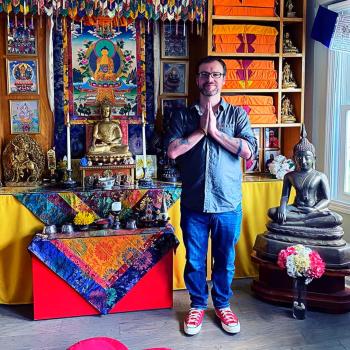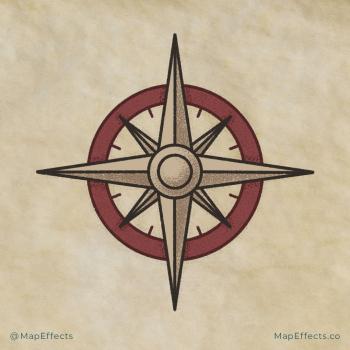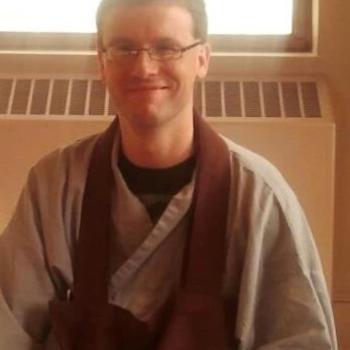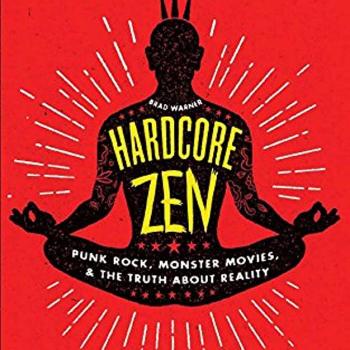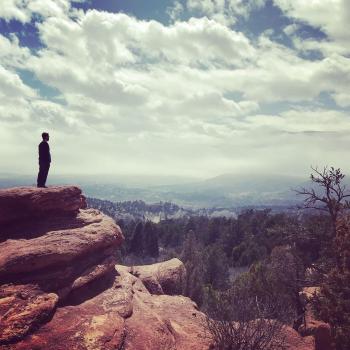“Experience your true self and help this world.” -Zen Master Seung Sahn
Compass of Zen is a book that was created to be a handbook for Seung Sahn’s students. Seung Sahn was a Korean Zen Master who founded the Kwan Um School of Zen, one of the largest Zen organizations in the United States. Since that time several of Seung Sahn’s students started their own communities including Furnace Mountain Zen Center, Golden Wind Zen Order, the Five Mountain Zen Order. I trained in that last one.
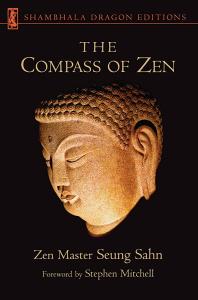
That title Compass has some connotations that I like. A compass helps you avoid getting lost. A compass reminds you which way is your destination. A compass will tell you which way is north. It could have been Map of Zen instead, but a compass is also more active. We participate actively in using a compass. With a map we participate in a more passive way.
Back when I was training with FMZO, just over ten years ago, I didn’t get what the big deal was. I didn’t appreciate these teachings that I was studying so intently. But I think a seed was planted. I’ve slowly come to appreciate them more and more as I’ve gone back to this text in recent years. Now I feel inspired to do a deep dive into this text and I want to take you with me.
I’m going to explore what Seung Sahn included in this practice manual and also try to grasp the intention behind each individual teaching.
In the Preface, which is written by Seung Sahn’s friend Maha Ghosananda, a monk from Cambodia, he attributes this quote to the Buddha.
“This holy life of practice of Dharma, if lived – and should there be a heaven after all, is paradise, and will assure the students long enjoyment of it. If there is no world beyond, at least in this very life one who follows the Dharma will be truly free of hostility and affliction. If the law of karma is indeed effective and true, then people who do no ill cannot suffer. Even if the law of karma is not effective, however, still their life of purity will always gain for them the praise of their intelligent fellow men and women, and bring happiness in this life.”
Right there, Maha Ghosananda is telling us that’s it’s okay if it’s hard to wrap our heads around teachings like rebirth and karma. It’s all okay. He must have known how much some western Buddhist students struggle with those teachings. This is a path for this life, not some other life. The truth is right here for us. We just have to tune into it. If there’s a future life and we are accumulating good karma, great. If there’s not, that’s okay too because we’re making our lives better here and now by practicing Buddhism.
Sometimes I think we don’t talk enough about how Buddhist practice makes our lives better. I’m not thinking of that in terms of making Buddhism more appealing to a wider audience. I think I need reminders sometimes that I’m not doing this as a hobby or something. I’m doing this to transform my life. If we approach the path too casually, it’s probably not going to do much for us. I think I stopped practicing with the Five Mountain Zen Order because I was approaching the path a little too casually. I wasn’t ready for the teachings and needed some life experience first. And maybe that’s okay.
Maha Ghosananda goes on to say this about Zen Master Seung Sahn and his teaching:
“Don’t know. Go straight. This is Zen Master Seung Sahn’s life and his teaching. If we do this, then we have no problems; when we have no problems, there is no tension. We always have tension because of problems; when we have no problems, there is no tension…Everything about Zen Master Seung Sahn is Zen teaching. He is always here and now, in the present moment, in all his actions.”
That’s some high praise.
In the Editor’s Preface, Hyon Gak Sunim says, “The Compass of Zen is a distillation of the core of the Buddhist teaching by an enlightened master of considerable renown.”
This is the text that was used to train me when I was training with the Five Mountain Zen Order. Seung Sahn is long dead, but he’s still teaching.
I hope you’ll consider exploring this text with me. I’m going to do a series of articles for however long it takes me to get through the whole thing. I am not an expert, but just an enthusiastic student of these teachings, so please take anything I have to say with a grain of salt. I’m returning to a teaching I walked away from a long time ago and I’m excited to approach it from the perspective that I have now.
If you want to purchase it, you can get it here. I highly recommend it:

